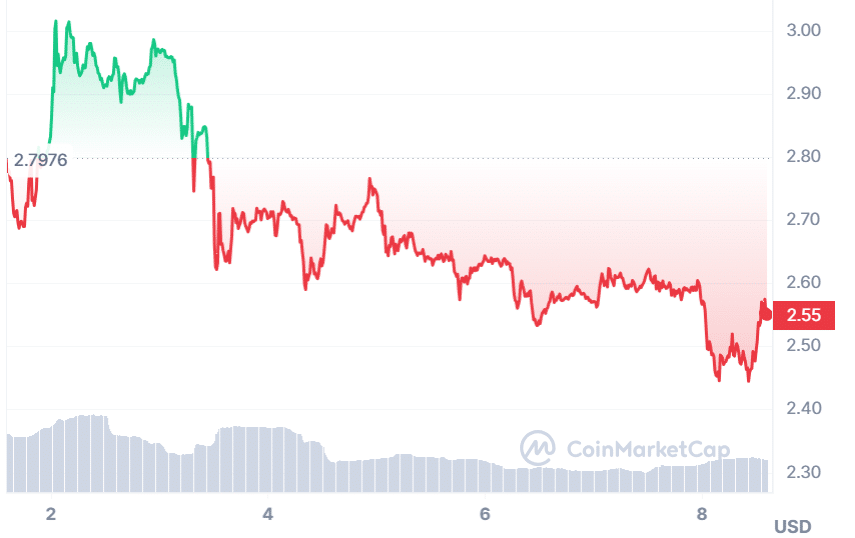A South Korean lawmaker has claimed that the nation’s leading crypto exchanges are “neglecting their responsibilities to protect investors.”
According to a report from Daehan Geumyoong Shinmun, the comments came from Min Byeong-deok.
Min is a member of the National Assembly’s Political Affairs Committee.
The MP, a member of the main opposition Democratic Party, took aim at the five exchanges that make up the Digital Asset Exchange Association (DAXA).
DAXA is a self-regulating body that makes decisions on a range of matters, including token listing and desisting policies. Min said:
“DAXA exchanges are neglecting their responsibility to protect investors. And they are [making use of] unprincipled measures in their approach to cryptocurrency.”
DAXA’s reputation has taken a series of blows in recent months, due mainly to apparent divisions between exchanges’ policies.
The body voted to unilaterally delist WEMIX, a token launched by the domestic gaming firm WeMade, in late 2022.

However, all but one of its members – Upbit – have since relisted the token, despite the fact that DAXA has never formally changed its policy on the WEMIX delisting.
The media outlet gave another example, however, noting that DAXA policies had been confusing in the case of an altcoin named Creditcoin (CTC).
Additionally, the media outlet explained that CTC had been “marketed as an overseas project,” but was widely considered “as a de facto kimchi coin, as “all of its practitioners are domestic.”
🚨🤯 Huobi Korea Announces Closure Citing Challenging Business Environment
South Korean cryptocurrency exchange #Huobi Korea has announced the shutdown of its services with effect from January 29, 2024. #CryptoNews #newshttps://t.co/phM1veQakk
— Cryptonews.com (@cryptonews) January 4, 2024
The term “kimchi coins” is typically used to describe low-cap altcoins that enjoy popularity on South Korean exchanges, but are not widely traded elsewhere.
The media outlet pointed out that while DAXA member Bithumb has placed CTC on its cautionary watchlist, no such action has been taken at the rival Upbit exchange.
South Korean Lawmaker Attacks DAXA Members’ ‘Lack of Responsibility’
Min bemoaned the fact that DAXA “has guidelines for designating coins of concerns and delisting.”
However, the MP claimed that the body has “consistently adopted a laissez-faire attitude” to these guidelines.
And he said that many “large exchanges do not follow” their own guidelines.
Min claimed that the self-regulating body “cannot avoid the criticism” that its policies had “become meaningless.” The lawmaker added:
“Investors are suffering damages due to the unprincipled actions of [leading] cryptocurrency exchanges.”
🇰🇷 South Korea Proposes Ban on Crypto Purchases with Credit Cards
South Korea’s Financial Services Commission (FSC) has announced a proposal aiming to ban crypto purchases with credit cards.#CryptoNews #newshttps://t.co/AyMolbNw7r
— Cryptonews.com (@cryptonews) January 4, 2024
Can South Korean Regulators Keep Domestic Crypto Sector in Check?
The lawmaker concluded that regulators would need to step up their efforts if they were serious about enforcing the Virtual Asset User Protection Act.
The new law is slated to come into force in July this year. It will force exchanges to take steps to protect their customers from fraud, rug-pulls, and other crypto-related scams.
A lawyer speaking at a meeting hosted by Min added that exchanges’ “listing and delisting committees” needed to “be separated.” Per News1, Choi Jin-hong of the YK Law Firm, said
“There is a possibility that [exchanges] are passive when it comes detecting [suspicious] transactions that accompany increases in transaction volumes. […] In the future, the industry should use an independent review committee or a self-regulatory organization [to decide on token listing and delisting policy].”
At the end of 2023, DAXA announced its intention to team up with financial regulators to hunt for “undeclared crypto operators.”
 cryptonews.com
cryptonews.com